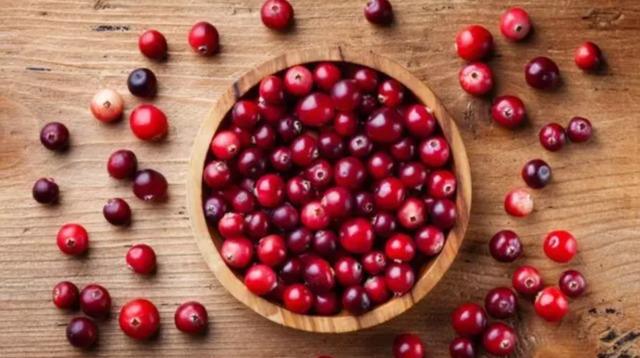Fatty liver disease is a common health problem that occurs in one in four people today. It is stated that in Turkey, this rate has increased even more and one in every two people has this disease. Nutrition and Dietetics Specialist Dr. Lecturer Member Merve Bayram stated that as a result of an 8-week study they conducted with cranberry fruit, they observed that consumption of cranberry fruit reduced body weight, body fat rate and waist circumference.
NO TREATMENT
While fatty liver disease associated with metabolic dysfunction (MAFLD) is seen in one in every 4 people in the world; In Turkey, it is seen at a very high rate, in one in every two people. Stating that there is no treatment for fatty liver disease, Istanbul Gelişim University (IGU) Faculty of Health Sciences (SBF) Nutrition and Dietetics Department faculty member Nutrition and Dietetics Specialist Dr. Merve Bayram said, “The only treatment method is to change the lifestyle by increasing diet and physical activity. “As a result of our 8-week study with cranberry fruit, which has a high amount of antioxidant capacity, we found that consumption of cranberry fruit reduces body weight, body fat rate and waist circumference,” he said.
“CRANBERRY FRUIT IS A RICH ANTIOXIDANT”
In recent years, interest in plant foods has increased considerably. Cranberry fruit is used in medicine for the prevention and treatment of various diseases; It is widely used in colds, flu and urinary tract infections, diarrhea, constipation, gastrointestinal disorders, cough, bronchitis and diabetes. Nutrition and Dietetics Specialist Dr. states that cranberry fruit is very rich in anthocyanins that give the fruit its red color. Lecturer Member Merve Bayram said, “Anthocyanins are compounds with the highest antioxidant capacity found in nature. Cranberries contain anthocyanins as well as many other compounds that increase their antioxidant content. Fatty liver disease is a disease that often involves obesity. “In our study that we set out for this purpose, we evaluated the effect of cranberry fruit on people with fatty liver disease, with or without diet treatment.”

“REDUCES BODY FAT RATE”
Stating that they divided the patients into 4 groups while carrying out the study, Bayram said, “The first group met its daily fruit requirement from 30 grams of lyophilized (powdered) dried cranberry fruits along with disease-specific diet treatment. The second group received only dietary treatment specific to the disease and did not consume any red, purple or blue fruits and vegetables. The third group continued on their own diet and took 30 grams of lyophilized dried cranberry fruit every day. The fourth group continued their diet and did not consume any red, purple or blue fruits and vegetables, including cranberries. Our fifth group was the group containing healthy individuals who were not diagnosed with fatty liver disease. Our study lasted 8 weeks. At the beginning of the study and at the end of the 8th week, body analysis and waist, hip and neck circumference measurements were performed for all groups; We found that consumption of cranberry fruit, whether as a dietary supplement or not, reduced body weight, body fat percentage, and waist circumference. The decrease in these results was much greater with dietary treatment. “The more interesting result was that when the decrease in liver fat rate was examined by ultrasound, a very serious decrease was seen in the group that consumed cranberries in addition to diet therapy,” he said. (UAV)

